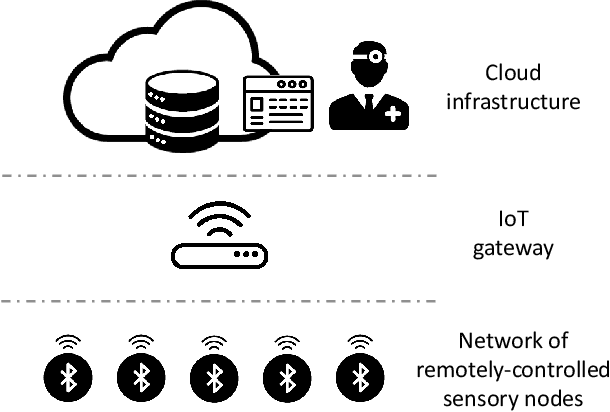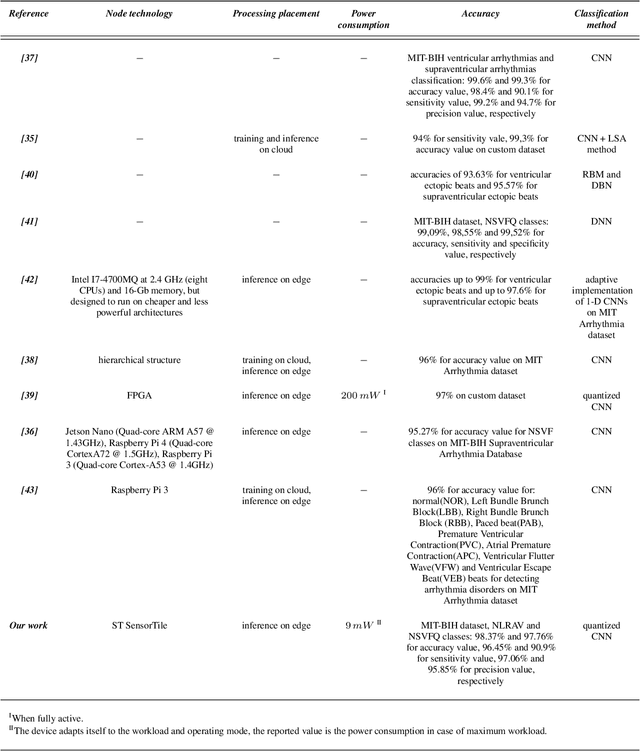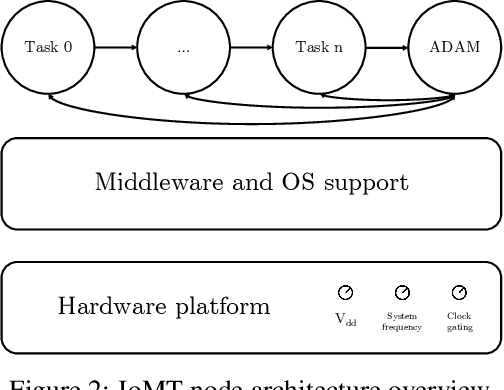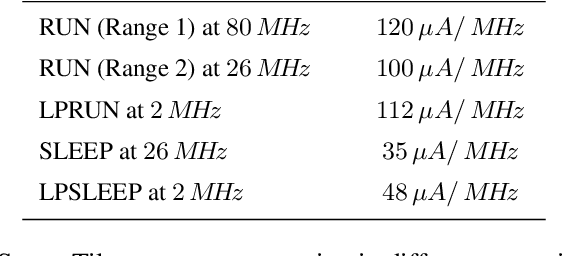Daniela Loi
An adaptive cognitive sensor node for ECG monitoring in the Internet of Medical Things
Jun 11, 2021



Abstract:The Internet of Medical Things (IoMT) paradigm is becoming mainstream in multiple clinical trials and healthcare procedures. It relies on novel very accurate and compact sensing devices and communication infrastructures, opening previously unmatched possibilities of implementing data collection and continuous patient monitoring. Nevertheless, to fully exploit the potential of this technology, some steps forwards are needed. First, the edge-computing paradigm must be added to the picture. A certain level of near-sensor processing has to be enabled, to improve the scalability, portability, reliability, responsiveness of the IoMT nodes. Second, novel, increasingly accurate, data analysis algorithms, such as those based on artificial intelligence and Deep Learning, must be exploited. To reach these objectives, designers, programmers of IoMT nodes, have to face challenging optimization tasks, in order to execute fairly complex computing tasks on low-power wearable and portable processing systems, with tight power and battery lifetime budgets. In this work, we explore the implementation of cognitive data analysis algorithm on resource-constrained computing platforms. To minimize power consumption, we add an adaptivity layer that dynamically manages the hardware and software configuration of the device to adapt it at runtime to the required operating mode. We have assessed our approach on a use-case using a convolutional neural network to classify electrocardiogram (ECG) traces on a low-power microcontroller. Our experimental results show that adapting the node setup to the workload at runtime can save up to 50% power consumption and a quantized neural network reaches an accuracy value higher than 98% for arrhythmia disorders detection on MIT-BIH Arrhythmia dataset.
 Add to Chrome
Add to Chrome Add to Firefox
Add to Firefox Add to Edge
Add to Edge